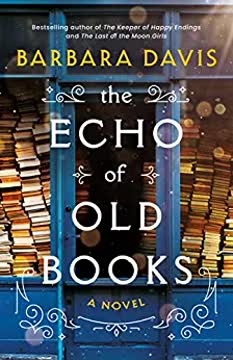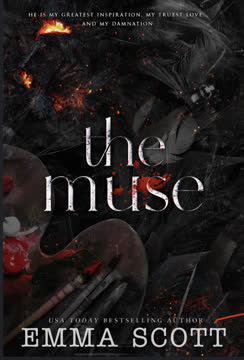Plot Summary
Bronx Beginnings, Broken Chords
Benny Lament's childhood in the Bronx is shaped by music and violence. His father, Jack "Lament" Lomento, is a former boxer turned mob enforcer, and Benny's earliest memories are of writing songs while witnessing his father's brutality. The lessons of family, loyalty, and the inevitability of "rottenness" are ingrained early. Benny's mother, a singer, dies young, leaving him with a love for music and a complicated relationship with his father. The chords he loves most are the ones that don't quite fit, mirroring his own sense of not belonging. This chapter sets the tone for Benny's lifelong struggle between the darkness of his family's world and the light he finds in music.
Esther's Song, Benny's Lament
Benny is introduced to Esther Mine, a tiny but powerful Black singer, by his father, who sees in her echoes of Benny's mother. Esther's voice is raw, angry, and unforgettable, and Benny is immediately drawn to her, both musically and emotionally. Their first encounter is charged with tension, ambition, and the unspoken barriers of race and reputation. Esther is determined to break out of obscurity, and Benny, despite his reluctance, is compelled to help her. Their connection is immediate but fraught, setting the stage for a partnership that will challenge both of their worlds.
Family Ties, Dangerous Lines
Benny's family history is a web of mob ties, old grudges, and unspoken pain. His father's loyalty to Sal Vitale, the family's mob boss, is both a source of pride and a chain around Benny's neck. The story of Bo "the Bomb" Johnson, a legendary Black boxer who disappeared after a scandalous love affair with a white heiress, haunts the family. Benny learns that Esther is Bo's daughter, hidden away after her mother's mysterious death. The lines between family, obligation, and danger blur, and Benny realizes that helping Esther means stepping into a minefield of old vendettas and powerful enemies.
The Wrong Woman's Melody
Benny reflects on his history of avoiding commitment, haunted by the knowledge that love in his world is dangerous. His relationship with Esther deepens, but so do the risks. The past is full of wrong women and missed chances, and Benny is terrified of repeating old mistakes. As he and Esther begin to collaborate musically, their personal and professional lives become inseparable. The wrong woman, it turns out, might be the only one who can save him—or destroy him.
Any Man, Any Cost
Benny and Esther, along with her brothers (the band Minefield), create "I Don't Need Any Man," a song that captures Esther's fierce independence and Benny's knack for channeling pain into music. Their creative chemistry is electric, and the song becomes their ticket to bigger stages. But the cost of success is high: Benny must navigate the expectations of his mob family, Esther's distrust, and the ever-present threat of violence. Their partnership is both a shield and a target, drawing attention from powerful figures who want to control or silence them.
Where You Belong
Benny returns to his father's apartment, grappling with guilt, love, and the weight of legacy. Conversations with his father reveal the depth of Jack's regrets and the impossibility of escaping family ties. Benny's music is his refuge, but even that is tainted by the knowledge that every opportunity comes with strings attached. The question of where he belongs—within his family, his city, and his own heart—becomes central as he commits to helping Esther, even as it pulls him deeper into danger.
No Shoes, New Paths
Esther's big break comes in the form of an audition at Atlantic Records, but nerves threaten to sabotage her. Benny's unconventional support—crowding her on the piano bench, provoking her into singing with fire—reveals the unique dynamic that makes them special. Their duet is raw, real, and impossible to ignore, convincing the label of their potential. Yet, the industry's racism and the shadow of Benny's mob connections complicate their path. The chapter is a testament to the power of being seen and heard for who you truly are.
Baby Ruth's Bargain
Esther's determination to succeed leads her to make bold, sometimes desperate offers to Benny—she'll do anything to escape obscurity, even if it means sacrificing her pride. Benny is both moved and unsettled by her vulnerability. Their relationship is a constant negotiation of power, trust, and desire. As they inch closer to success, the dangers multiply, and the lines between personal and professional become ever more tangled.
Itty Bitty, Big Trouble
Minefield's first single, "Itty Bitty," gains traction, but with attention comes trouble. Old secrets resurface, and powerful enemies take notice. Benny's mob ties, Esther's parentage, and the unresolved mystery of her mother's death converge, threatening to derail everything they've built. The band faces betrayal, violence, and the realization that their music is both a weapon and a target.
The Bomb Johnson Legacy
Esther claims her heritage on stage, telling the world she is Bo Johnson's daughter and singing his story. The revelation is explosive, drawing both adoration and danger. The song "The Bomb Johnson" becomes a rallying cry, but also a lightning rod for those who want the past to stay buried. Benny and Esther's decision to tell the truth, no matter the cost, marks a turning point in their journey—from survival to defiance.
About Time, About Truth
Benny's father is murdered, a casualty of the secrets and vendettas that have always haunted their family. The loss is devastating, forcing Benny to confront the reality that love and loyalty are not enough to protect those you care about. The truth about Esther's mother's death, the role of Sal Vitale, and the tangled web of mob and political power come to light. Benny and Esther must decide whether to keep running or to stand and fight for their place in the world.
Friends Like Us
In the aftermath of tragedy, Benny and Esther find solace in each other and in the band. Their friendship, once fraught with suspicion and rivalry, becomes a source of strength. They redefine family—not as the people you're born to, but the ones you choose and fight for. Together, they decide to keep making music, keep telling their story, and keep pushing forward, no matter the obstacles.
Devil on the Doorstep
As Minefield's fame grows, so does the danger. Attempts on their lives, betrayals from within, and the ever-present threat of mob retribution force Benny and Esther to confront the reality that their love and their music are acts of rebellion. The devil is always at the doorstep, and survival means outsmarting, outlasting, and sometimes outgunning those who want to silence them.
Pandora's Box Opened
The truth about Esther's parentage, her mother's death, and the mob's involvement is finally revealed. The consequences are immediate and far-reaching—alliances shift, enemies become allies, and the world is forced to reckon with the ugly realities beneath the surface. Benny and Esther's decision to open Pandora's box means there's no going back, but it also means they are finally free to live—and love—on their own terms.
Lines We Cross
Minefield hits the road, facing racism, violence, and the invisible lines that divide America. Benny and Esther's interracial relationship is both a beacon and a target, and every performance is an act of courage. The band's journey is a microcosm of the country's struggle with change, and their refusal to back down inspires both admiration and hatred. The lines they cross—personal, social, and political—become the battleground for a new kind of family.
Benny and the Laments
Minefield's performances become legendary, not just for the music but for the chemistry between Benny and Esther. Their banter, their arguments, and their undeniable connection captivate audiences and defy expectations. The band's name changes, their sound evolves, but the heart of the act remains the same: two people, against the odds, making something beautiful out of pain.
But I Do
Benny and Esther finally admit their love for each other, despite the risks and the certainty that it will make their lives harder. Their decision to marry is both an act of defiance and a declaration of hope. The world may not be ready for them, but they are ready for each other. Their love is messy, complicated, and real—the kind that endures not because it's easy, but because it's worth it.
Motown Sound, Motown Strife
The band finds refuge and opportunity at Motown, where Berry Gordy and his family offer support, resources, and a sense of belonging. But even in this haven, the realities of racism, jealousy, and the ever-present threat of violence persist. The music industry is as cutthroat as the streets, and Benny and Esther must navigate new dangers while holding on to their integrity and each other.
Worth Saving
As Minefield's star rises, Benny and Esther are forced to confront what truly matters. The past cannot be changed, but the future is theirs to shape. They honor the memories of those they've lost, reclaim the stories that were stolen, and build something worth saving—a family, a legacy, and a love that endures.
The Oddest Things
Amidst the chaos, Benny and Esther find joy in the oddest things: mismatched socks, shared laughter, and the quiet comfort of being together. Their love is not perfect, but it is real, and it is enough. The chapter is a celebration of the small victories that make survival possible, and the realization that happiness is found not in grand gestures, but in the everyday acts of care and connection.
Twisted Loyalties
The final secrets come to light: the true circumstances of Maude Alexander's death, the betrayals within the family, and the cost of loyalty. Theresa's confession, Sal's reckoning, and the violent confrontation in Chicago bring closure—and new wounds. Benny and Esther must decide what kind of family they want to be, and what they are willing to forgive.
I Wish I Knew
After a brutal attack, Benny recovers with the help of Esther and the band. The world remains dangerous and unpredictable, but they learn to adapt, to find strength in each other, and to keep moving forward. The limits of understanding—of themselves, of each other, of the world—are acknowledged, but so is the power of love to bridge those gaps.
That's All
Benny and Esther's journey comes full circle: from the Bronx to the national stage, from brokenness to wholeness, from fear to hope. Their marriage, their music, and their family are testaments to the possibility of change. The story ends not with a grand finale, but with the quiet assurance that, together, they can face whatever comes next.
Ave Maria
In a climactic performance, Esther sings "Ave Maria" for a room full of enemies and allies, claiming her place in the world and honoring the mother she never knew. The song is both a lament and a blessing, a plea for mercy and a declaration of strength. The past is not erased, but it is transformed, and Esther and Benny step into the future with courage.
Change
The final confrontations bring both tragedy and liberation. The truth is out, debts are paid, and the old order is shattered. Benny and Esther choose each other, not because it is easy, but because it is right. Their marriage is a new beginning, a promise to keep fighting for a better world, and a testament to the power of love to change everything.
Together Forever
Benny and Esther's story becomes legend, inspiring others to cross lines, tell their truths, and love without fear. Their family grows, their music endures, and the world, slowly but surely, changes. The story ends with a sense of hard-won peace, the knowledge that the fight is never truly over, but that together, they are strong enough to face whatever comes. Their love is not just a song—it is a revolution.
Characters
Benny Lament
Benny is a gifted pianist and songwriter, shaped by a childhood of violence, loss, and complicated love. The son of a mob enforcer and a singer, he is torn between loyalty to his family and his desire to forge his own path. Benny's psychological landscape is marked by guilt, fear of entanglement, and a deep longing for connection. His relationship with Esther transforms him, forcing him to confront his own prejudices, vulnerabilities, and capacity for love. Over the course of the story, Benny evolves from a man running from his past to one who claims his place in the world, not by denying his roots, but by choosing what—and who—he wants to be.
Esther Mine (Lament)
Esther is a powerhouse singer with a chip on her shoulder and a heart full of longing. The daughter of Bo Johnson and Maude Alexander, she is the product of a forbidden love and a world that wants to erase her. Raised in secrecy and struggle, Esther is both tough and vulnerable, determined to make her mark but afraid of being truly seen. Her relationship with Benny is a battleground and a sanctuary, a place where she can finally be herself. Esther's journey is one of claiming her story, her family, and her right to love and be loved. She is both the spark and the anchor of the narrative, driving change through sheer force of will.
Jack "Lament" Lomento (Pop)
Benny's father is a man defined by contradictions: violent yet loving, loyal yet trapped, resigned yet hopeful. His life is a testament to the costs of survival in a world where everyone is "a little rotten." Jack's love for Benny is fierce but often expressed through sacrifice and silence. His past with Bo Johnson, his loyalty to Sal, and his inability to escape the family business shape Benny's destiny. Jack's death is both a catalyst for change and a haunting presence, reminding Benny of the dangers and the possibilities of choosing a different path.
Salvatore Vitale (Uncle Sal)
Sal is the gravitational center of the family's criminal world—a man who commands loyalty, inspires fear, and believes in the sanctity of family above all. He is both benefactor and threat, capable of great generosity and ruthless violence. Sal's relationship with Benny is complex: part mentor, part rival, part father figure. His obsession with Maude Alexander, his role in the family's tragedies, and his ultimate reckoning with his own sins make him a deeply human antagonist. Sal is a mirror for Benny, showing what happens when loyalty becomes a cage.
Bo "the Bomb" Johnson
Bo is a mythic figure—physically imposing, emotionally wounded, and forever marked by his love for Maude Alexander. His disappearance after Maude's death and his daughter's birth is both an act of self-preservation and a source of lifelong regret. Bo's legacy haunts every character, and his eventual return is both a reckoning and a release. He represents the costs of crossing lines in a world that punishes difference, but also the possibility of redemption and change.
Money Mine
Money is Esther's oldest brother and the de facto manager of Minefield. Suspicious, protective, and often abrasive, he is slow to trust Benny and fiercely loyal to his family. Money's skepticism is both a shield and a wound—he fears betrayal and abandonment, and his antagonism masks a deep need for security. Over time, Money comes to respect Benny, but their relationship is always fraught, a reminder of the difficulties of blending families and forging new loyalties.
Alvin Mine
Alvin is the heart of the band, always ready with a prayer, a joke, or a word of encouragement. His faith is both a comfort and a challenge to the others, and his ability to find hope in the darkest moments is a source of strength. Alvin's journey is one of learning to balance idealism with realism, and his role as a reverend in later years reflects his commitment to change through love and community.
Lee Otis Mine
Lee Otis is the band's drummer and the youngest member of the Mine family. Intelligent, sensitive, and often overlooked, he is the observer who sees what others miss. His love of learning and his eventual decision to leave the band for academia reflect the story's theme of finding your own path. Lee Otis's innocence and curiosity are a counterpoint to the cynicism of the older characters.
Theresa Vitale
Theresa is Sal's wife, a woman trapped by circumstance and consumed by jealousy and resentment. Her actions—born of pain and invisibility—have devastating consequences, including the deaths of Maude Alexander and Jack Lomento. Theresa's confession is a moment of both horror and pity, revealing the ways in which women are both victims and perpetrators in a world ruled by men. Her fate is a cautionary tale about the costs of silence and the dangers of unacknowledged rage.
Gloria Mine
Gloria raises Esther as her own, providing love, stability, and a sense of belonging in a world that wants to erase her. Her decision to hide the truth about Esther's parentage is both protective and damaging, a reflection of the impossible choices faced by women of her generation. Gloria's relationship with Esther is complicated—marked by love, resentment, and the ever-present shadow of the past. She is a reminder that family is as much about survival as it is about blood.
Plot Devices
Dual Narratives and Interwoven Timelines
The novel uses a dual narrative structure, alternating between Benny's first-person recollections and transcripts of a 1969 radio interview. This device allows the story to unfold both as lived experience and as retrospective analysis, creating tension and foreshadowing. The interwoven timelines highlight the ways in which the past shapes the present, and the radio show format provides a chorus of public opinion, grounding the personal story in the broader context of American history.
Music as Metaphor and Catalyst
Music is both the language and the engine of the story. Songs are written, performed, and dissected in real time, serving as metaphors for the characters' emotional states and as catalysts for action. The creation and performance of music bring characters together, expose hidden truths, and provoke both admiration and violence. The recurring motif of dissonant chords—notes that don't quite fit—mirrors the characters' struggles to find harmony in a discordant world.
Family Secrets and Revelations
The plot is driven by secrets: Esther's parentage, the circumstances of Maude Alexander's death, the true nature of Benny's family business. These secrets are revealed gradually, often at great personal cost, and their exposure forces characters to confront the realities of their lives. The device of delayed revelation creates suspense and allows for deep psychological exploration, as characters grapple with guilt, shame, and the possibility of forgiveness.
Racial and Social Boundaries
The story is set against the backdrop of the civil rights movement, and the characters' personal struggles are inextricably linked to the larger social upheaval. The plot uses the device of "lines"—racial, familial, and moral—to explore the costs of crossing boundaries. Every choice to love, to perform, to tell the truth is an act of defiance, and the consequences are both personal and political. The narrative structure mirrors the unpredictability of change, with moments of hope followed by setbacks and betrayals.
Foreshadowing and Circularity
The novel is rich in foreshadowing, with early events and conversations echoing throughout the story. The circular structure—beginning and ending with music, with love, with the struggle to belong—reinforces the idea that history repeats itself, but also that change is possible. The use of recurring phrases ("Don't let me down, Benny Lament") and motifs (the missing finger, the broken chord) creates a sense of inevitability, but also of resilience.
Analysis
The Songbook of Benny Lament is a sweeping, emotionally charged exploration of what it means to love—and to survive—in a world defined by violence, prejudice, and the weight of family history. Through the intertwined journeys of Benny and Esther, the novel examines the costs and rewards of crossing lines: racial, familial, and personal. Music is both a refuge and a weapon, a way to claim space in a world that wants to silence difference. The story does not shy away from the ugliness of the past or the complexity of its characters; instead, it insists that true change comes not from denial, but from the courage to tell the truth, to forgive, and to keep moving forward. The lessons are clear: family is chosen as much as inherited, love is an act of rebellion, and the only way to change the world is to show it what change looks like. In the end, Benny and Esther's story is not just about survival, but about the possibility of joy, connection, and a better future—together.
Last updated:
Review Summary
The Songbook of Benny Lament is a highly acclaimed historical fiction novel set in 1960s New York. Readers praise Harmon's vivid storytelling, complex characters, and exploration of race, music, and love. The book follows Benny, a white songwriter, and Esther, a black singer, as they navigate the challenges of an interracial relationship amidst mob connections and civil rights struggles. Many reviewers found the story emotionally powerful, well-researched, and relevant to current events. The unique narrative structure and Harmon's lyrical prose were also frequently commended.








